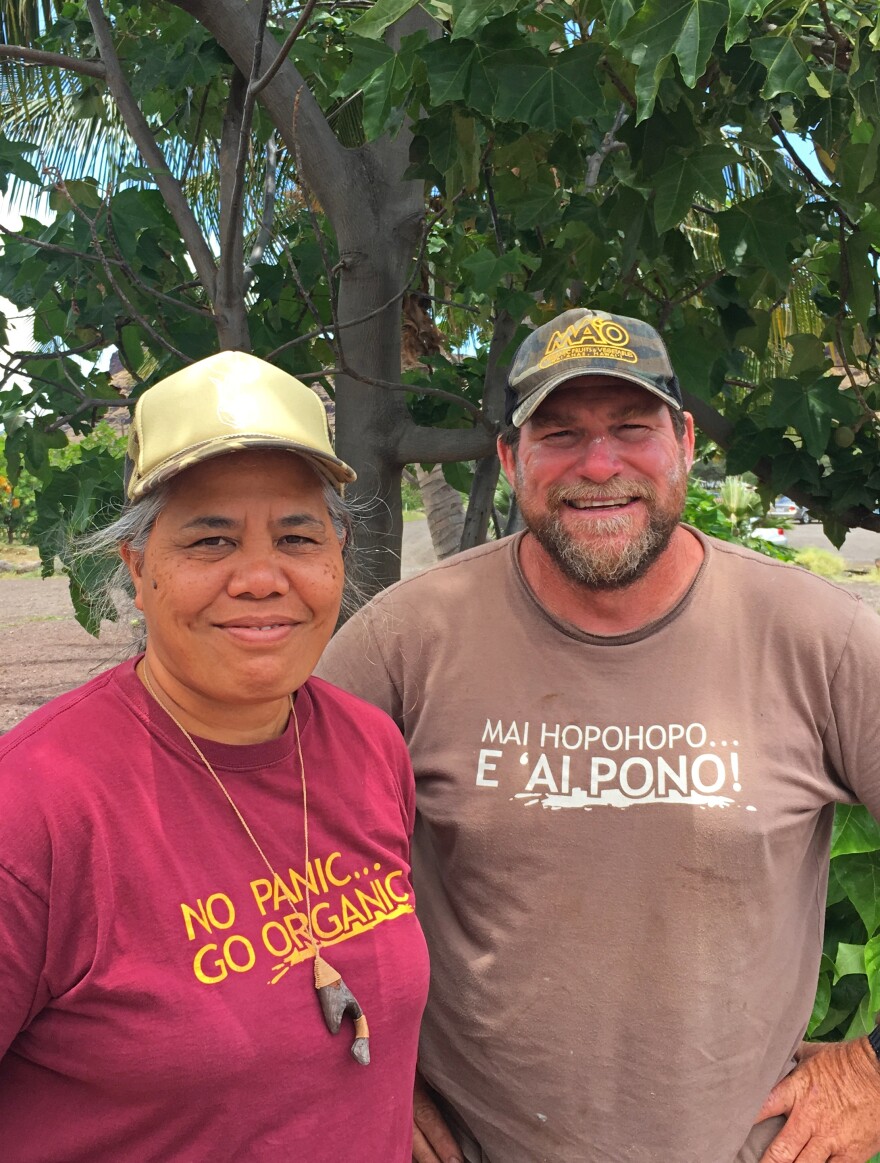If you shop for fruits and veggies at Whole Foods, Foodland, or the KCC Farmers’ Market, chances are you’ve come across produce from MA?O Organic Farms. The Wai?anae farm is about to undertake its largest expansion yet – one that could grow its food production tenfold.
On a hot and humid morning in Lualualei Valley, 29-year-old Derrik Parker treks through the rich, muddy soil at MA?O Organic Farms to snip arugula for harvest.

“Usually you wanna look for the slightly thicker stemmed ones,” says Parker. “This is sold to like more of our stores like Whole Foods and the different Foodlands.”
Parker admits he never thought he’d be a farmer. After high school graduation, he secured a two-year internship on this farm that paid for his college tuition as well as a monthly stipend.
“In the midst of just the work trying to figure out what to do with my life and then slowly learning the impact that this farm was having positively on our community, I realized I kind of wanted to stay a little longer.”

He’s been here for 11 years now.
Wai?anae youth work and manage the 24-acre farm producing thousands of pounds of produce for local distribution.

MA?O’s goal is not just to grow produce but to cultivate educated, culturally-rooted youth through its internship program.
Flame Porter an apprentice at MA?O says it gives him and others another option after high school.
“You know, you don’t have to go military. You don?t have to be in debt in college,” says Porter. “And it’s not just an alternative but I feel it’s a better solution.”

An estimated 350 interns have gone through the program since MA?O began 18 years ago. More than 100 of them earned associate degrees and 30 received their bachelor’s.
“We’ve known for a really long time that what we’re doing is critical for young people’s lives,” says Gary Maunakea-Forth, co-founder and operations manager at MA?O. “It’s critical for our community, it’s critical to produce food, to produce local, organic food.”

Maunakea-Forth and his wife, Kukui, who was born and raised on the Leeward Coast, began the farm with just five acres in 2001. MA?O is an acronym for M?la ?Ai ??pio or “youth food garden.”
“You know we had this vision to establish a place where people and land could come together,” says Kukui Maunakea-Forth. “Which is why the farming enterprise is so super important, because we are producing something of value from that connection."
She isn’t just talking about fruits and veggies. She’s talking about creating abundance – financial, social, and environmental abundance for an entire generation out on the west side of O?ahu.

MA?O’s work has become a catalyst for change on the Leeward Coast, says Kealoha Fox. She leads native Hawaiian health and well-being initiatives at the state Office of Hawaiian Affairs.

“What’s long been a narrative about the impoverished community that has high crime and faces major inequities in health and education now has a story of resilience,” says Fox. “It has a story talk about social equity, economic stability, nutritious and health foods, and a sustainable O?ahu over the long term.”

We asked MA?O’s current crop of interns what they enjoyed most about working there.
"I think just being together with my peers. They make the day go by really quick and it?s super fun," said Tiare Toetu?u-Aipa.
Leona Elwin said farming is cool, "just coming to the farm and learning about the work, the hard work."
Both recently completed their first year of college. They may not realize it yet but they are part of a movement, and its growing.
MA?O recently acquired an additional 236 acres nearby through a partnership with Kamehameha Schools and Central Pacific Bank.

The expansion will allow MA?O to increase its community impact by growing its internship program 4-fold and its organic food production 10-fold.
“It actually confirms that what we do is important and that it works,” says MA?O Farm Manager and former intern Kaui Sana. “I think it?s like a bigger challenge, a way for us to think even bigger of how we can lift up our whole community, not just MA?O. It?s not about MA?O anymore.”




